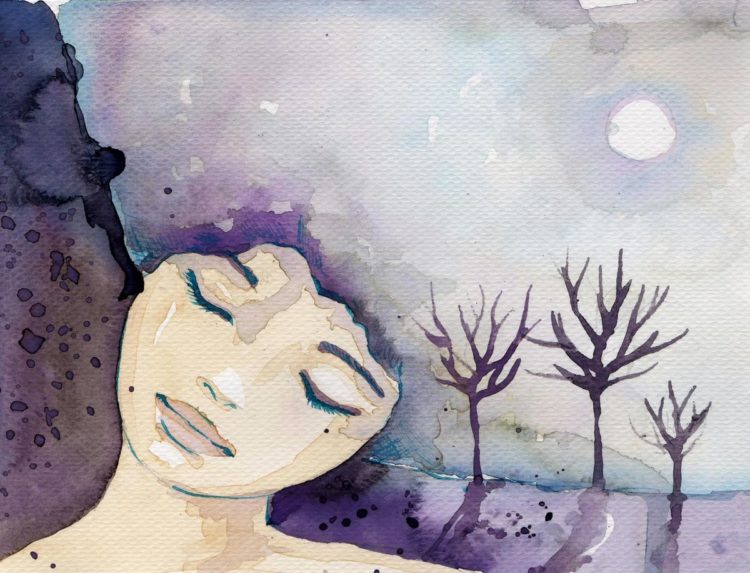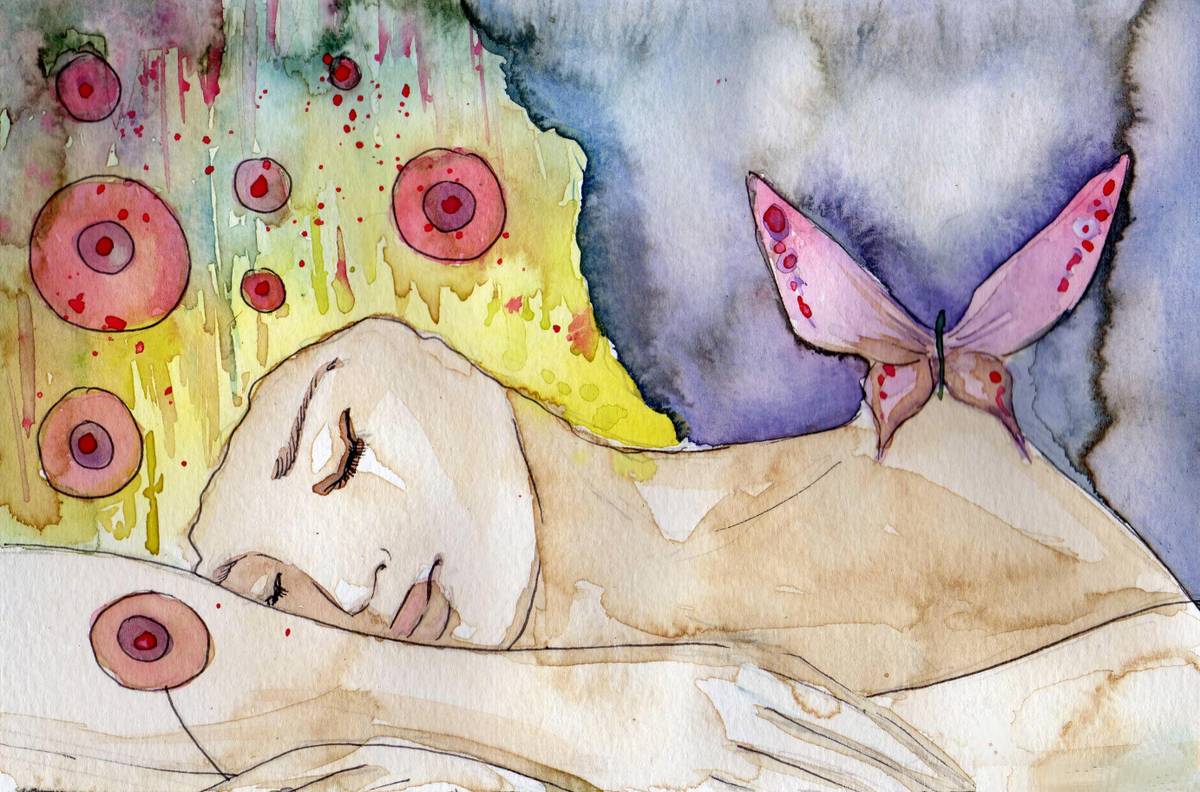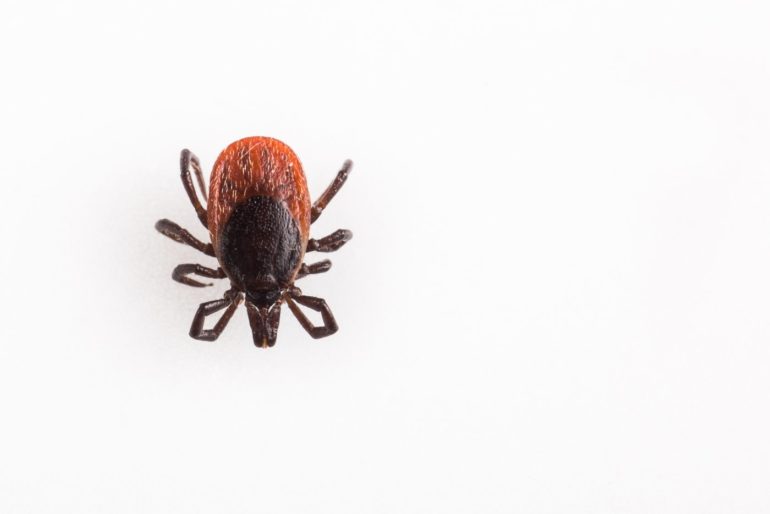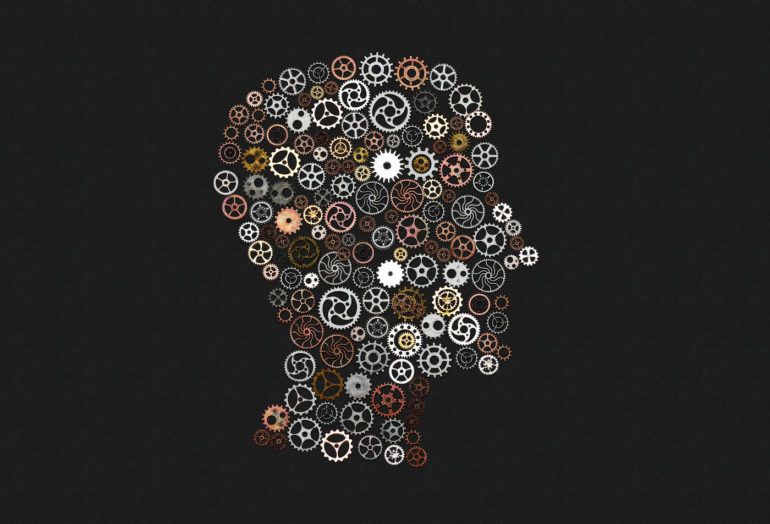How can you better remember your dreams?
Why do people have trouble remembering their dreams? And more to the point: is there anything you can do to improve your dream recall?
It’s happened to all of us. First, you’re in the middle of a wild or strange or amazing or fantastic or scary or breathtaking or arousing or inspiring dream — and are maybe even aware that you’re actually dreaming.
Then you wake up, and start to tell your partner about the crazy experience it felt like you just had. “Wow, what a bizarre dream, it was…” And then, mid-sentence, you forget what it was all about.
Thirty seconds ago, you were in it. And now not only can you not recall why it was so interesting, but you can’t even remember what you did or where you were.
You’re not alone. In fact, on average, people forget 95% to 99% of their dreams immediately after they wake up. But why?
Not so total recall
Sometimes there’s just no clear-cut answer, and that’s certainly the case here. However, there are some theories.
One suggestion is that we don’t remember our dreams simply because we aren’t paying close attention to them.
Essentially, it’s been suggested that dreams are like doing any task that doesn’t take a lot of concentration — like driving on a straight open road, or singing along to a song you know the lyrics to by heart: the time can pass and you don’t really recall what you just drove by or sang. Since you aren’t really paying active, conscious attention, you don’t remember.
Other research indicates that there may be an actual chemical and biological reason dreams aren’t recalled.

Thanks, brain.
During REM sleep, when dreams occur, some of the brain chemicals that are necessary to convert short term memories to long term ones are suppressed — so unless the dream is especially vivid, or you wake up during or immediately after it, you’re unlikely to remember the scenario.
There are yet more clues. In a study reported in January 2013, researchers made two observations: “high dream recallers” have twice as many times of wakefulness during sleep as “low dream recallers,” and their brains are more reactive to sound during when both sleep and awake.
This increased brain reactivity may promote awakenings during the night, and so might help with at least a temporary memory of dreams during brief periods of wakefulness.
In a 2014 study, researchers used Positron Emission Tomography (PET) to measure the spontaneous brain activity of 41 volunteers during wakefulness and sleep. High dream recallers showed stronger spontaneous brain activity in the temporo-parietal junction, an area of the brain involved in noticing things going on in the world outside the mind.
“This may explain why high dream recallers are more reactive to environmental stimuli, awaken more during sleep, and thus better encode dreams in memory than low dream recallers.” said Perrine Ruby, Inserm Research Fellow. “Indeed the sleeping brain is not capable of memorizing new information; it needs to awaken to be able to do that.”
The study authors noted that it is also possible that people with high dream recall actually have more and longer dreams than do people who recall less of their dreams.
Some research has also indicated that, on average, people that are not particularly good at tasks involving visual imagination — like those horrible SAT questions where they ask you, “Which structure can you build from these blocks” — tend to recall dreams less than those who can build detailed images in their mind’s eye.
How can you remember more of your dreams?
So, is there anything you can do to improve your dream recall? There are a few different things to try.
Get some B
First, there might be a little something — legal! — that you can take that could help.
Researchers from Australia’s University of Adelaide found that adding a little vitamin B6 to your diet might make it easier to recall what kind of stories your brain’s been telling.
“Our results show that taking vitamin B6 improved people’s ability to recall dreams compared to a placebo,” says research author Dr Denholm Aspy, from the University’s School of Psychology. For five consecutive days, the team had 100 people take high-dose (240mg) vitamin B6 supplements just before going to bed.
“Vitamin B6 did not affect the vividness, bizarreness or color of their dreams, and did not affect other aspects of their sleep patterns,” Aspy said of the study reported in 2018.
Prior to taking the supplements, many of the participants rarely remembered their dreams, but they reported improvements by the end of the study. “It seems as time went on my dreams were clearer and clearer and easier to remember,” one subject said at the end of the study. “I also did not lose fragments as the day went on.”
Wake up
Another option that might work can easily lead to being tired, crabby, and irritable the next day. Several researchers have found that, for most people, dream recall is better if someone is woken up during or immediately after a dream.
Presuming you don’t have an EEG to monitor your brainwaves — and someone willing to stay up all night to watch it and wake you up as needed — the most scientific approach is hardly the most practical.
If you don’t mind potentially ruining a night of sleep, you could try the hit-or-miss method. Essentially, you set an alarm to wake you up periodically throughout the night to see if you can catch yourself mid-dream.
Make dream notes
One thing everyone can do, however, is to keep a dream journal.
It’s about as easy as it sounds. Keep a pen and a notebook on the nightstand (for example, we like this leather-bound journal), and upon awakening from a dream, immediately write down everything you can remember. Don’t let yourself get distracted with anything else — checking the time, going to the bathroom, talking to someone — until you have made your notes.
Worried you won’t be able to read your 2am scrawl? Some people (especially those who don’t have to worry about waking anyone else up) might prefer to dictate the dream into a recorder, or have a smartphone assistant like Siri or Google transcribe voice notes.
No matter how you do it, these little breadcrumbs will give you at least a partial record of what happens in your dreams. Even better, the very act of keeping a dream journal can actually lead to improving dream recall.
So how to do you put into words all the nuance that comes from a dream in which you’re walking through your old house… but then you’re in some office you don’t recognize. And there’s a party, and your fourth-grade teacher is there, and she’s made you a cellular peptide cake with mint frosting?
Just do your best, and accept that it’s not all going to make sense in the morning. But eventually, you may be able to pick out some patterns related to some anxiety you’re feeling or a problem you’re avoiding… or might just hammer the point home that you have been chilling a little too much with late-night Netflix.
It won’t work well for everyone
Like everything in life, there’s no one-size-fits-all. Some people are wired differently, and just may be able to naturally remember dreams better.
For instance, if you’re female, you’re in luck — women tend to be able to recall dreams more frequently than men.
There are also cross-gender benefits some people might have. As mentioned above, researchers found some brains are just more aware of dreams. They wrote that “high and low dream recallers were found to differentially process first names during wakefulness, suggesting different functional organization of the brain in the two groups.”
Based on your past recollection of your nighttime hallucinatory adventures, you probably already know which group you’re in.
No matter what techniques you decide to try, be patient, and give each one enough time to make a difference.
Good luck, and may all the dreams you remember be sweet!







